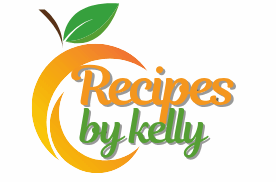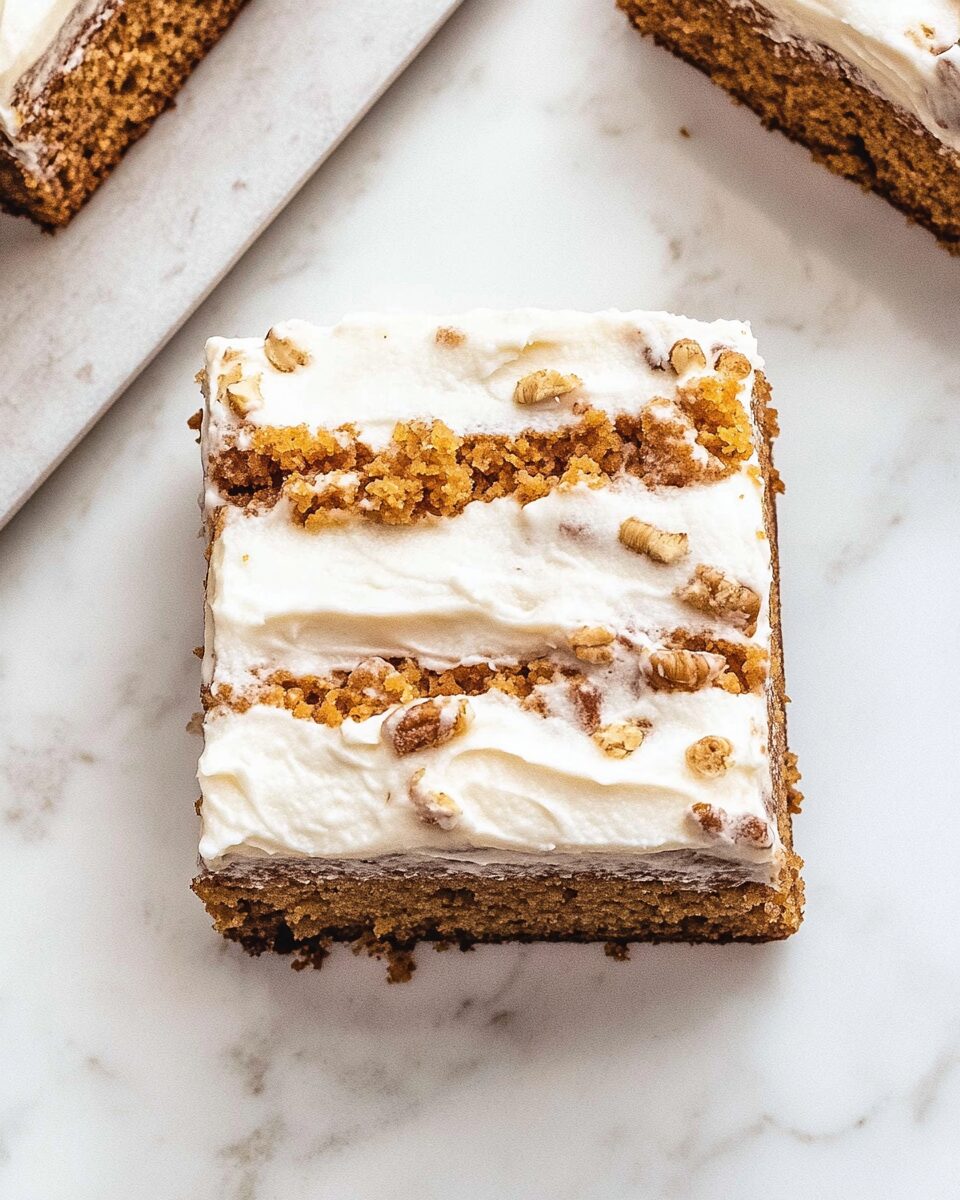This vegan carrot cake is a delightful celebration of texture and flavor. The moist crumb, rich with natural sweetness from carrots and pineapple, is beautifully complemented by a luscious, creamy cashew frosting that’s both tangy and sweet. The warm spices—cinnamon, nutmeg, and ginger—infuse the cake with cozy autumnal notes, making it an irresistible treat for any occasion.
Whether you’re vegan, dairy-free, or simply craving a wholesome dessert, this cake is a perfect fit. It’s simple enough for everyday baking yet elegant enough to serve at gatherings or holiday dinners. The combination of fresh ingredients and plant-based richness invites you to indulge without guilt, delighting your palate and nourishing your body.
Full Recipe:
-
2 cups all-purpose flour
-
1 cup organic cane sugar
-
1/2 cup brown sugar
-
1 teaspoon baking powder
-
1 teaspoon baking soda
-
1/2 teaspoon salt
-
2 teaspoons ground cinnamon
-
1/2 teaspoon ground nutmeg
-
1/4 teaspoon ground ginger
-
1 1/2 cups grated carrots (about 3 medium carrots)
-
1/2 cup crushed pineapple, drained
-
1/2 cup unsweetened applesauce
-
1/2 cup vegetable oil or melted coconut oil
-
1 teaspoon vanilla extract
-
1/4 cup plant-based milk (almond, oat, soy, etc.)
Cashew Frosting Ingredients:
-
1 cup raw cashews (soaked for 4 hours or overnight, then drained)
-
1/4 cup maple syrup
-
2 tablespoons lemon juice
-
1/4 cup coconut cream
-
1 teaspoon vanilla extract
-
Pinch of salt
Directions:
-
Preheat the oven to 350°F (175°C). Grease and flour a 9-inch round cake pan or line it with parchment paper.
-
In a large bowl, whisk together the flour, cane sugar, brown sugar, baking powder, baking soda, salt, cinnamon, nutmeg, and ginger until well combined.
-
In a separate bowl, mix the grated carrots, crushed pineapple, applesauce, oil, vanilla extract, and plant-based milk until smooth.
-
Pour the wet ingredients into the dry ingredients and stir until just combined. Do not overmix.
-
Pour the batter into the prepared cake pan and smooth the top with a spatula.
-
Bake for 35-40 minutes or until a toothpick inserted in the center comes out clean. Let the cake cool completely in the pan on a wire rack.
-
Meanwhile, prepare the cashew frosting: In a high-speed blender or food processor, blend soaked cashews, maple syrup, lemon juice, coconut cream, vanilla extract, and salt until smooth and creamy. Add a splash of plant milk if needed to reach desired consistency.
-
Once the cake is fully cooled, spread the cashew frosting evenly over the top.
-
Chill the cake for 30 minutes before slicing and serving for best texture.
Prep Time: 20 minutes | Cooking Time: 40 minutes | Total Time: 1 hour
Kcal: Approximately 320 kcal per serving | Servings: 8 servings
The Charm of Vegan Carrot Cake: A Wholesome Classic Reimagined
Carrot cake has long been a beloved dessert, treasured for its moist texture, warm spices, and the subtle natural sweetness that carrots bring. This classic cake is a staple at celebrations, afternoon teas, and cozy family gatherings alike. The vegan version of carrot cake elevates this tradition by removing all animal products, making it suitable for those following plant-based, dairy-free, or egg-free diets — without sacrificing any of the flavor or indulgence that make carrot cake so popular.
What makes vegan carrot cake so special is its perfect balance of health and indulgence. Unlike traditional cakes that rely on butter, eggs, and cream cheese frosting, this plant-based cake uses wholesome ingredients like applesauce, crushed pineapple, and oil to keep the crumb tender and moist. The cashew-based frosting brings creamy richness without dairy, offering a luscious and tangy finish that complements the spicy, sweet cake base beautifully.
Why Choose a Vegan Carrot Cake?
Choosing a vegan carrot cake is about more than just dietary preferences; it’s a conscious choice towards a more sustainable, ethical, and often healthier lifestyle. Vegan baking eliminates the use of eggs and dairy, which are common allergens and can be difficult to digest for many people. This makes the cake more accessible to a broader audience, including those with allergies or intolerances.
Additionally, plant-based desserts tend to be lighter on the environment. Dairy farming is a significant contributor to greenhouse gases and water consumption, so replacing dairy cream cheese with cashew-based frosting and using natural sweeteners can reduce your carbon footprint. Plus, vegan cakes are often made with whole food ingredients, which means you get more nutrients and fiber compared to highly processed baked goods.
The Perfect Texture: Moist and Fluffy Without Eggs
One of the biggest challenges in vegan baking is achieving the right texture, especially when replacing eggs, which act as a binding and leavening agent in traditional cakes. In this vegan carrot cake, the combination of applesauce and crushed pineapple works wonders to keep the cake moist and tender while providing natural sweetness and acidity that helps the cake rise and develop a light crumb.
The grated carrots themselves contribute moisture and texture, along with a slight crunch that adds interest to each bite. This results in a cake that is neither dry nor dense, but beautifully balanced—soft enough to melt in your mouth yet sturdy enough to hold up well when frosted and sliced.
The Magic of Spices in Carrot Cake
Carrot cake isn’t just about carrots. It’s the warm spices that elevate it to a comforting treat. Cinnamon is the star, providing a sweet, woody warmth that instantly evokes feelings of home and hearth. Nutmeg and ginger add layers of complexity, with nutmeg bringing a subtle nuttiness and ginger contributing a mild, spicy bite that wakes up the palate.
These spices don’t just flavor the cake; they contribute antioxidants and anti-inflammatory compounds, which make the dessert a little bit more nourishing. The aroma of these spices baking together fills the kitchen with a sense of cozy anticipation that makes the cake even more irresistible.
Cashew Frosting: Creamy, Tangy, and Dairy-Free
Traditional cream cheese frosting is often a deal-breaker for those avoiding dairy. The vegan cashew frosting used here is a brilliant alternative. Soaked raw cashews blended with maple syrup, lemon juice, and coconut cream create a smooth, creamy frosting with just the right balance of sweetness and tang.
Cashews provide healthy fats and a creamy texture that mimics dairy very closely without the heaviness. The lemon juice adds a bright note that cuts through the sweetness, preventing the frosting from becoming cloying. This frosting not only tastes luxurious but also offers some nutritional value, including vitamins, minerals, and healthy fats that support overall wellness.
Versatility and Customization
One of the joys of this vegan carrot cake recipe is how easy it is to customize. You can add chopped nuts like walnuts or pecans for extra crunch, fold in raisins or shredded coconut for added texture, or even stir in some vegan chocolate chips for a bit of indulgence.
If you prefer a gluten-free version, simply substitute the all-purpose flour with a gluten-free flour blend that can hold moisture well. You can also experiment with different plant-based milks like oat or cashew milk depending on your taste preferences or availability.
This cake works wonderfully for any occasion — from a casual family dessert to a centerpiece at birthday parties or holiday celebrations. It holds up well refrigerated and can even be frozen for longer storage, making it a convenient choice to prepare ahead.
Health Benefits of Carrots and Natural Sweeteners
Carrots are a powerhouse ingredient in this cake. They are rich in beta-carotene, fiber, vitamins A, K, and C, and antioxidants. Incorporating them into baked goods is a clever way to sneak some extra nutrients into your diet while enjoying a sweet treat.
Using natural sweeteners like organic cane sugar, brown sugar, and maple syrup instead of refined white sugar provides a more complex flavor profile and avoids the blood sugar spikes associated with processed sugars. Additionally, ingredients like applesauce and pineapple add natural sweetness and moisture without extra calories or artificial additives.
Environmental and Ethical Considerations
Beyond personal health, vegan baking aligns with broader ethical and environmental values. Reducing reliance on animal products helps conserve water, reduce deforestation, and lower greenhouse gas emissions. Choosing plant-based recipes encourages mindful eating habits and supports sustainable food systems.
This vegan carrot cake is a delicious way to embody those values. It allows people to celebrate with a comforting dessert while honoring their commitment to compassion and sustainability.
Baking Tips for Success
For the best results, always grate the carrots finely but not too mushy, to ensure they distribute evenly throughout the batter. Don’t overmix the wet and dry ingredients — just combine until you no longer see dry flour to keep the cake light and airy.
Make sure to fully soak the cashews for the frosting; this softens them enough to blend into a perfectly creamy texture. If you’re short on time, soaking them in hot water for at least an hour can work in a pinch.
Finally, allow the cake to cool completely before frosting — this prevents the frosting from melting and sliding off, keeping your cake neat and beautiful.
Conclusion
This vegan carrot cake recipe is a wonderful example of how plant-based baking can be both delicious and nutritious. It transforms traditional comfort food into a wholesome treat that anyone can enjoy, regardless of dietary restrictions. The combination of fresh carrots, natural sweeteners, warm spices, and creamy cashew frosting makes every bite a delight.
Whether you’re a committed vegan, curious about plant-based eating, or simply looking for a healthier way to indulge your sweet tooth, this cake offers a perfect balance of flavor, texture, and nourishment. It’s easy to prepare, customizable to suit your taste, and sure to become a favorite in your recipe collection.
Baking this vegan carrot cake is not just about creating a dessert—it’s about embracing a lifestyle choice that values health, sustainability, and kindness to animals and the planet. Serve it at your next gathering or enjoy a slice with your afternoon tea, and savor the comforting warmth and richness of this timeless plant-based delight.








